When the Endocrine Society launched its Medical School Engagement Program in 2024, it was an effort to increase the flow of endocrinologists into the workforce. Now, less than a year later, Endocrine News gets an exclusive update from some of the universities who have taken an active role in promoting endocrinology as a rewarding career option for future generations.
In recent years, the field of endocrinology has faced significant challenges, with workforce shortages and declining competitiveness in recruitment. A 2014 paper by Vigersky et al. highlighted insufficient numbers of endocrinologists to meet demand and called for proactive strategies.
Subsequent studies in 2020 by Romeo et al. and Tsai et al. underscored the inadequate growth of the workforce and its implications, with only about 8,000 active endocrinologists serving the U.S. population. Once the most competitive internal medicine fellowship in 2010, endocrinology now struggles to attract and retain talent, emphasizing the need for bold, systemic changes to revitalize the field. Recent news reports highlight the need for more endocrinologists across the country. In fact, one study by GoodRx from December 2024 found that 70% of U.S. counties do not have a single endocrinologist despite the increasing numbers of diabetes and obesity.
The Endocrine Society continues to build on our strong commitment to offering programs that make a meaningful impact in addressing these challenges. The Medical School Engagement Program (MSEP) was launched in 2024 to address the lack of exposure to the endocrinology specialty during medical school. Since students are not required to rotate through endocrinology outpatient clinics, where most endocrine care occurs, they need alternative options to learn about and experience clinical endocrinology in practice.
MSEP offers an award to each medical school to provide interesting and interactive events, two student travel awards to attend ENDO 2025 in San Francisco, Calif., in July, and a network of other institutions across the country. Ten medical schools were awarded in 2024, look here for more information about the current awardees: www.endocrine.org/our-community/advancing-endocrinology-and-public-health/medical-school-engagement-program/msep-2024-awardees.
We reached out to some of the participating schools to learn more about their programs and activities and how these events were received by the potential endocrinologists of tomorrow!
University of New Mexico
The University of New Mexico has been hosting monthly Endocrinology Interest Group meetings since August with first- through third-year medical students, endocrinology fellows, and internal medicine residents attending.
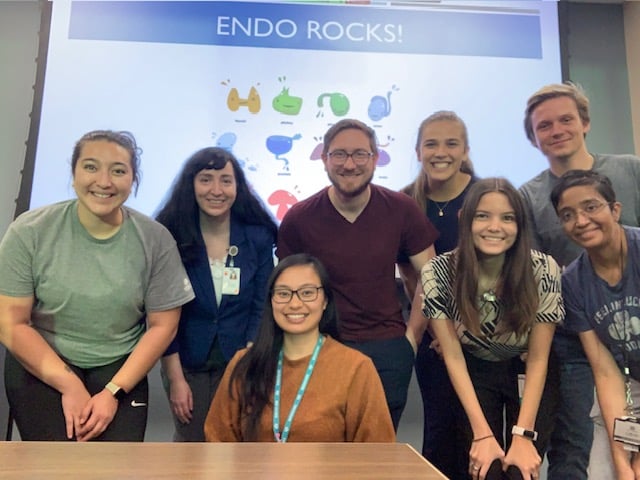
Topics discussed include clinic shadowing opportunities, potential research/scholarly projects, and interesting endocrine cases. They have also discussed the favorite glands of the endocrinology faculty! – Christina Lovato, MD, University of New Mexico MSEP Program Lead
University of Minnesota
With under four months of active programming behind us, we see promising trends and have learned important lessons for future success. At the University of Minnesota in October, the Endocrine Society joined their event featuring hands-on diabetes device training. With approximately 30 students in attendance, adult and pediatric endocrinologists, physician assistants/physician associates, and certified diabetes care and education specialists guided the students through an interactive workshop to learn more about diabetes technology and delivery systems.
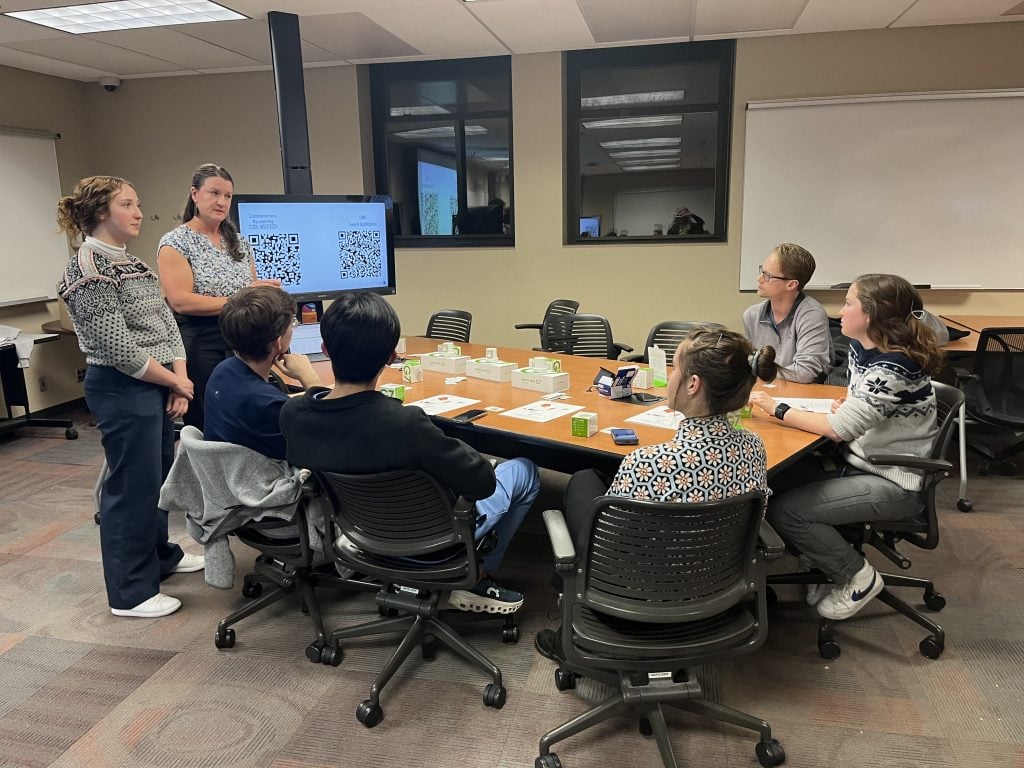
The students rotated through stations helping them experience insulin pens and syringes, GLP-1 pens, glucagon, glucometers, and each participant was able to receive a continuous glucose monitor to wear. This collaborative event allowed students to visualize the monitoring and treatment modalities available for those with diabetes. – Megan Kristan, MD, University of Minnesota MSEP Program Lead
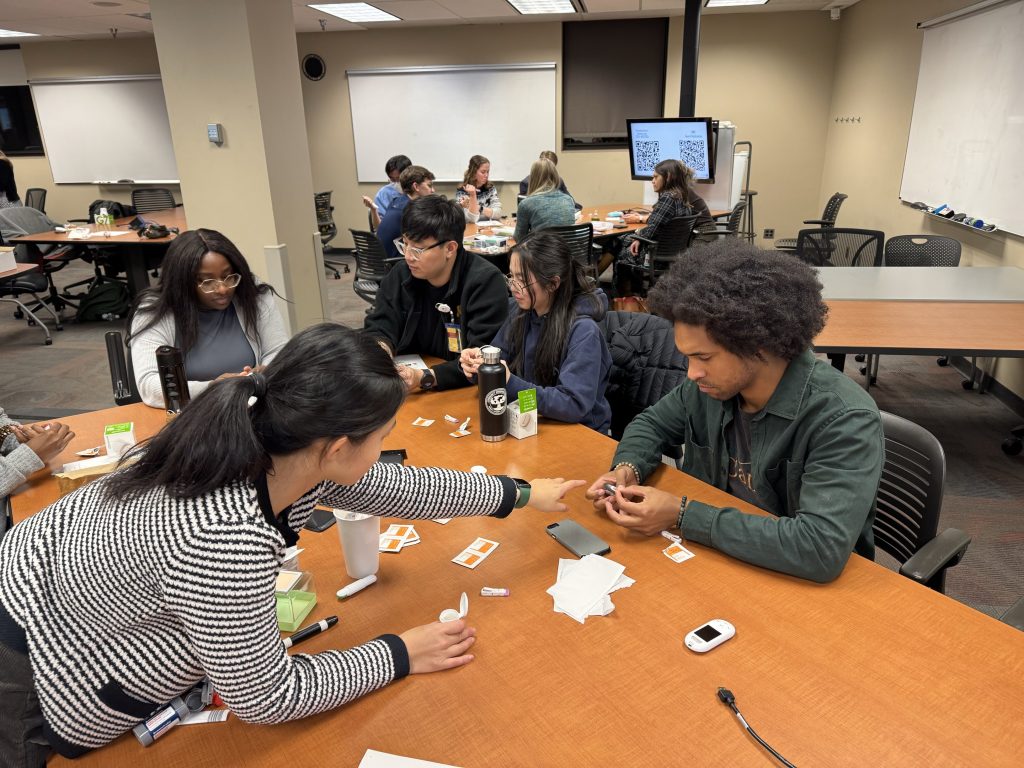
University of Virginia
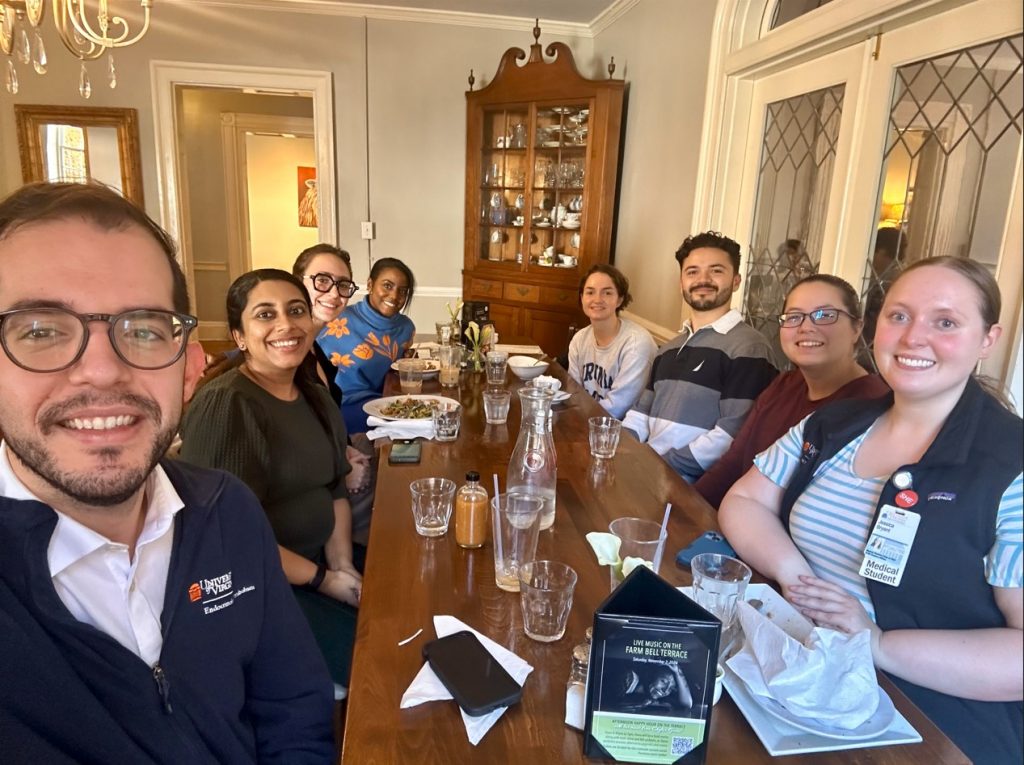
At the University of Virginia, attendance to the endocrinology interest group has been delightfully robust, growing, and enthusiastic. Events in the fall included dinner and engagement with faculty discussing “Why Endocrinology?” and “Academic versus Private Practice Opportunities.” We also created a Near-Peer group so that students can meet informally with our endocrine fellows to explore career options.
Spring programs will cover hot topics such as “The Use of Technology in Endocrinology,” “Hormone Administration, Public Policy and the Law,” “Professional Athletes and Doping” as well as a fun endocrine trivia night. Since any interest by students must be maintained throughout residency, we plan to connect graduating students with endocrinology fellowship program directors at their matched institutions. – Layal Esper, MD, University of Virginia MSEP Program Lead
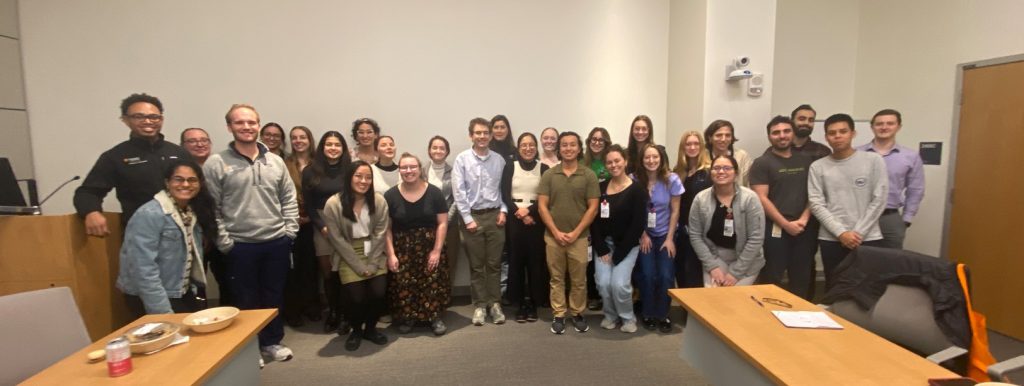
University of Cincinnati
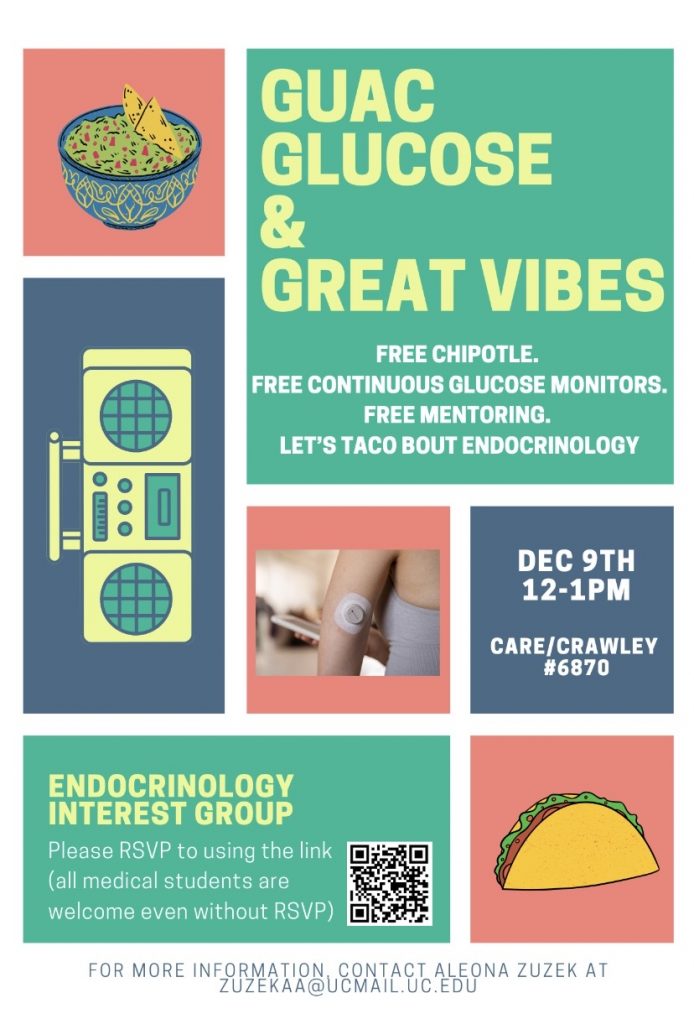
Building on the success of our well-established Internal Medicine interest group at the University of Cincinnati, we conducted strategic planning sessions with stakeholders at all levels, from students to educational leaders in the dean’s office, and launched an endocrinology-focused student interest group. Our inaugural event, “Guac, Glucose & Great Vibes,” drew 24 enthusiastic medical students, primarily first- and second-years, and featured a mix of engaging and informative activities.
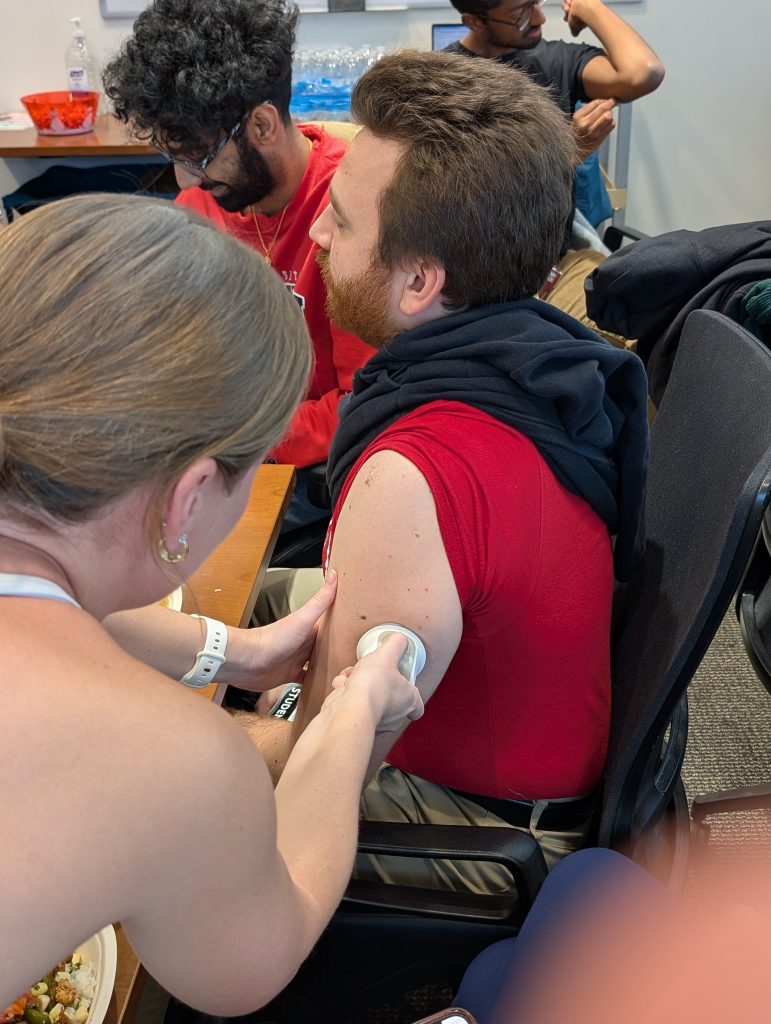
The students were proud to learn that UC was one of 10 institutions nationally selected to receive a grant aimed at engaging students in the field of endocrinology. Attendees enjoyed a catered meal and received continuous glucose monitors, while hearing from physicians at various stages of training about their personal journeys into endocrinology. The event also included an overview of what endocrinologists do, the benefits of the MSEP program for selected institutions, and plans for future group activities. The strong turnout and positive feedback from this event reflect a growing interest in endocrinology among our students and set the stage for continued success. – Mercedes Falciglia and Aleona Zuzek, University of Cincinnati Medical School Program Leads
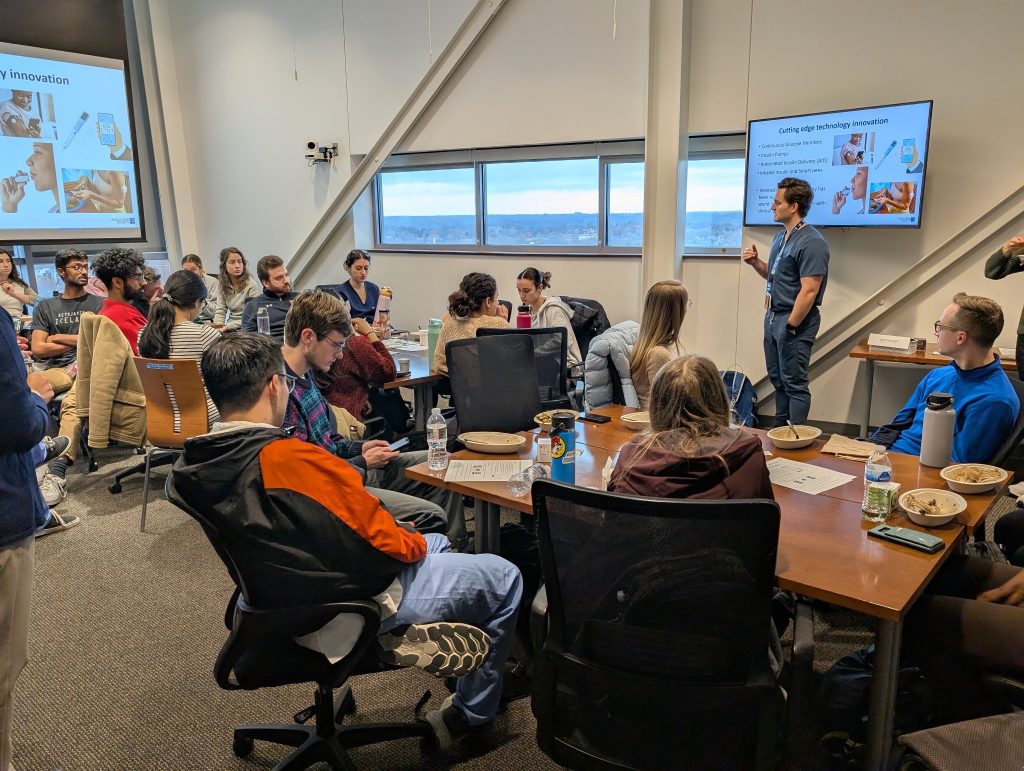
Stanford University
At Stanford University, the MSEP kicked off with great enthusiasm, beginning with an event in September that brought together faculty, endocrinology fellows, and medical students for an engaging discussion about career pathways in endocrinology. Attendees shared personal insights on why they chose the field and at what stage of their careers they made this decision, highlighting the diversity of opportunities within endocrinology. This event also featured a journal club format where participants reviewed a recent publication.
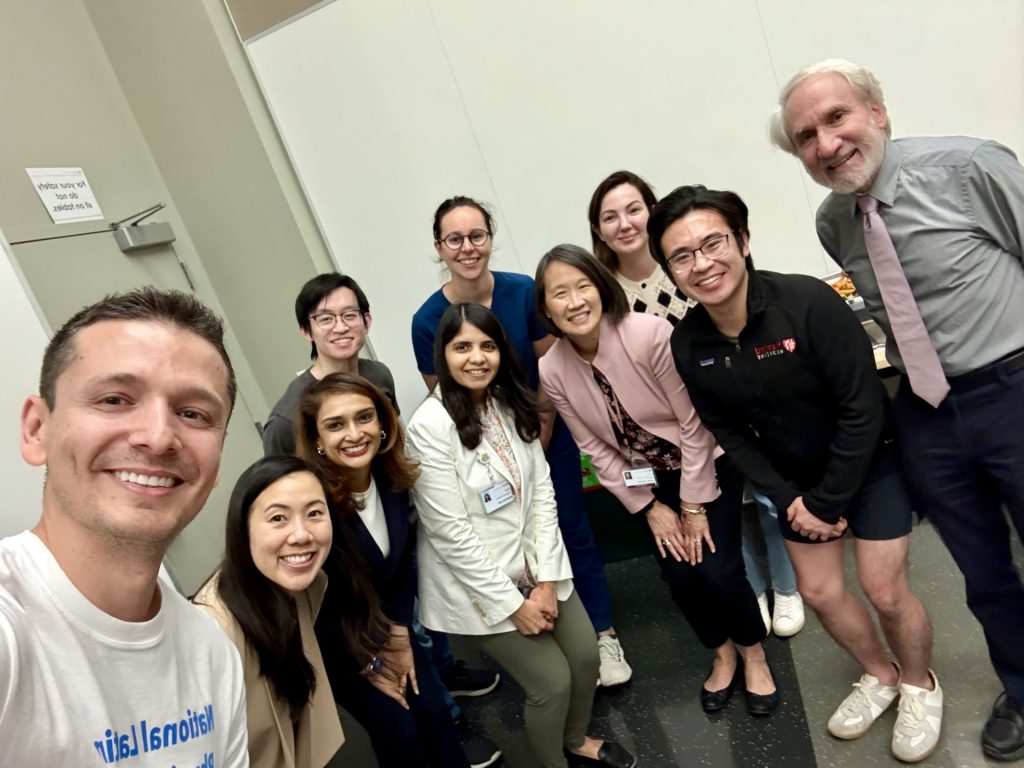
The second event focused on the evolution of type 1 diabetes treatment, featuring a dynamic faculty speaker who detailed advances from early insulin therapies to modern automated insulin delivery systems, as well as challenges related to health equity and disparities in diabetes care. Inspired by this session, students posed thoughtful questions and left eager to make an impact in the field. Stanford’s growing endocrinology interest group now includes a committed cohort of students, one of whom is already preparing an abstract submission for ENDO 2025.
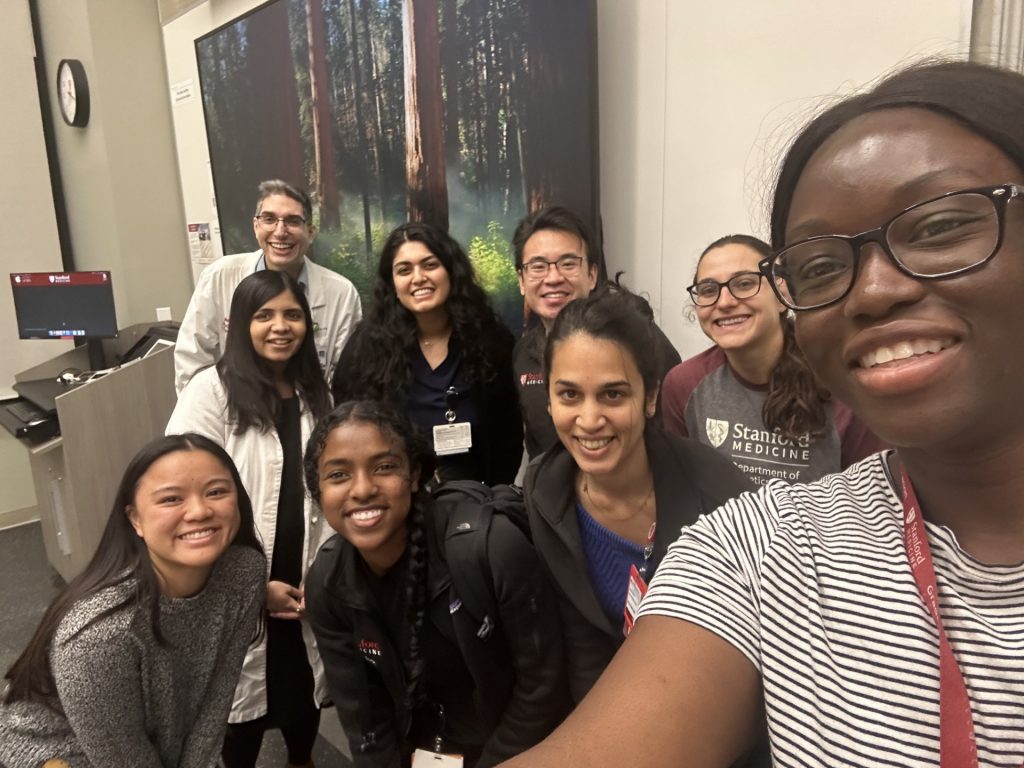
The program’s next event in January will feature a faculty meet-and-greet showcasing research opportunities in basic, clinical, and translational endocrinology, helping students connect with mentors for summer and year-long research projects. With these diverse events, Stanford is fostering a strong interest and engagement in the field of endocrinology among medical students. – Dimpi Desai, MD, and Neil Gesundheit, MD, Stanford University MSEP Program Leads
Albert Einstein College of Medicine
At the Albert Einstein College of Medicine, the Endocrine Interest Group (EIG) had its inaugural meeting with about 25 students hearing what life is like for an academic clinical endocrinologist (who also happens to run the Endocrine Systems course at the college). The EIG student directors, collaborating with the pediatric and adult endocrine clinical teams, have begun to place over 40 students (and growing) into clinical shadowing experiences, research collaborations, and sent invitations to interested students for multidisciplinary endocrine-related tumor boards, thyroid being the most popular with over 10 requests.
Einstein also hosted an EIG meeting introducing students to physician scientists working on clinical and translation research related to endocrine and aging. The next meeting will introduce the medical students to fellowship training for adult and pediatric endocrinology, with program directors and current fellows sharing their experience. All events include an endocrine swag raffle, and Eric Epstein continues to entice students to attend by sharing endocrine clinical pearls for the USMLE (United States Medical Licensing Examination) step I exam. – Eric Epstein, MD, Einstein College of Medicine MSEP Program Lead
The examples here provide a glimpse into the exciting work of the Medical School Engagement Program and experience of six of our first ten awardees. The Application for our 2025 MSEP will be open February 3 – March 3, 2025.
Don’t miss out on your chance to participate in this important work.
Uelmen is the director of Professional and Clinical Affairs at the Endocrine Society.

